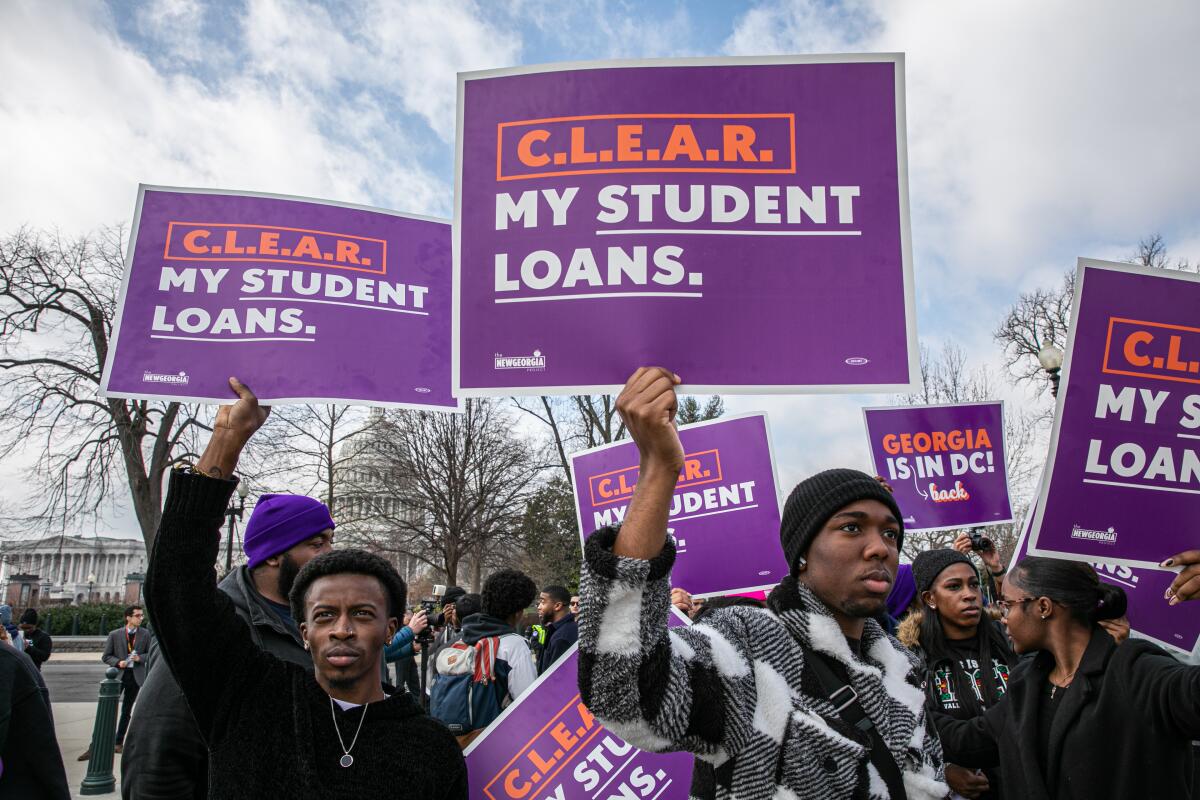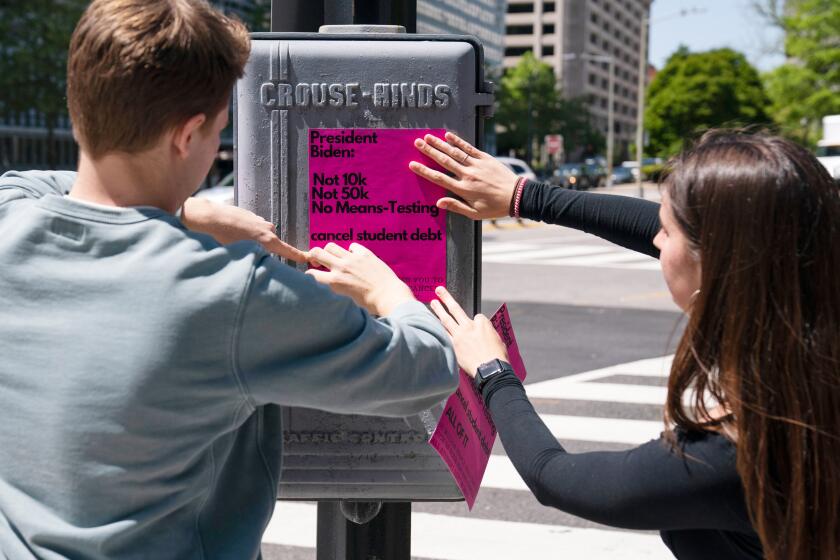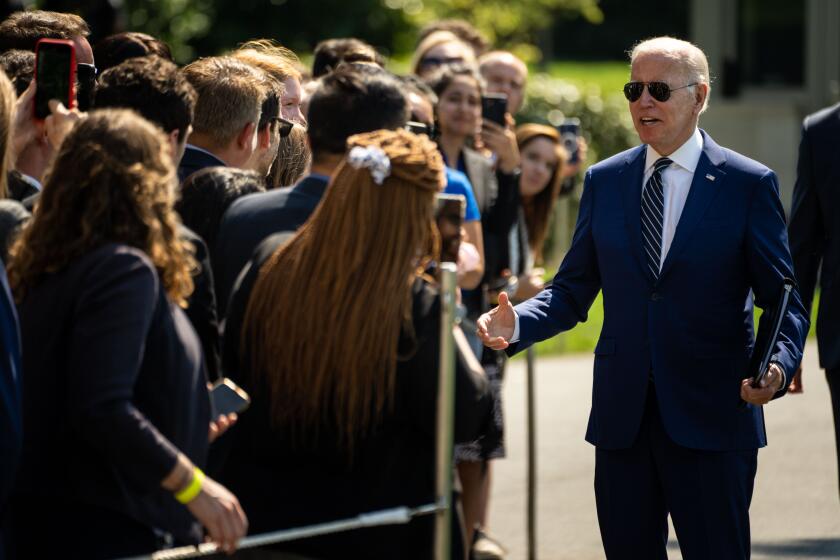Editorial: Supreme Court should not yank away the lifeline for people drowning in student debt

It was obvious at Tuesday’s oral arguments at the Supreme Court that several justices have problems with the Biden administration’s plan to provide more than $400 billion in student loan forgiveness. For example, Chief Justice John G. Roberts Jr. asked why it was fair to make the owner of a lawn care service, who took out a loan to start his business, pay taxes that subsidize debt forgiveness for a better-paid college graduate.
But the question before the court in two lawsuits challenging the plan isn’t whether the administration is pursuing a wise or just policy, though we believe there is a compelling case for targeted relief for Americans burdened by college debt. It is whether President Biden’s plan was authorized by an act of Congress, the Higher Education Relief Opportunities for Students (HEROES) Act of 2003, that empowers the secretary of Education to waive or modify loan provisions in response to a national emergency. The answer is yes, or at least it should be.
In this case, the emergency is the COVID-19 pandemic, which, as Solicitor Gen. Elizabeth B. Prelogar explained to the justices, has “caused enormous disruption and economic distress.” She added that over the past three years “millions of Americans have struggled to pay rent, utilities, food, and many have been unable to pay their debts.”
Erase $10,000 in debt per person? $50,000? Biden is expected to announce his plan for burdensome student debt, but the problem will only be compounded unless we reform how much students spend on college.
In response to that harm, Education Secretary Miguel Cardona announced a plan to forgive loans of up to $10,000 for some eligible borrowers and up to $20,000 for recipients of Pell Grants, who tend to have smaller incomes. That relief is far less generous than proposals for a blanket forgiveness of student debt up to $50,000 per borrower. It also is only one example of the government forgiving loans in connection with the pandemic.
Student loans have mired millions of Americans in debt. Many of them would be struggling even in the absence of a pandemic, but COVID has made their situations worse. Forcing them into default is harmful not only to them but also to the economy. And while addressing the problem of student debt in the future will involve measures other than loan forgiveness — including reducing the costs of higher education and putting more emphasis on non-college opportunities — debt relief is an indispensable part of the solution.
Roberts seemed skeptical that the HEROES Act authorizes the administration’s provision of such relief, suggesting that specific consequences of the plan (such as the unfairness to his hypothetical lawn care provider) might constitute a “major question” that Congress needs to address. But it’s unreasonable to expect Congress to anticipate every consequence of an emergency power.
The Biden administration’s student loan relief plan is expected to wipe out the debt of 1 million or more Californians. Here’s who is eligible and for how much forgiveness.
The justices should uphold the Biden plan — assuming that they decide that the parties challenging the program have legal standing to bring those actions in the first place. Their standing is doubtful. The government argues persuasively that the challengers — six states and two student loan borrowers who are excluded from some or all of the program’s benefits — haven’t sustained the sort of injury that gives them standing to sue.
One can argue that Congress should have explicitly authorized the loan forgiveness that the administration extended, and of course congressional action will be necessary if the court unwisely strikes this program down. But there is no reason for the justices to take such drastic and disruptive action.
The Biden administration has offered a lifeline to Americans, most of them young, coping with financial obligations made more onerous by a national medical and economic emergency. The court should not yank it away.
More to Read
A cure for the common opinion
Get thought-provoking perspectives with our weekly newsletter.
You may occasionally receive promotional content from the Los Angeles Times.












